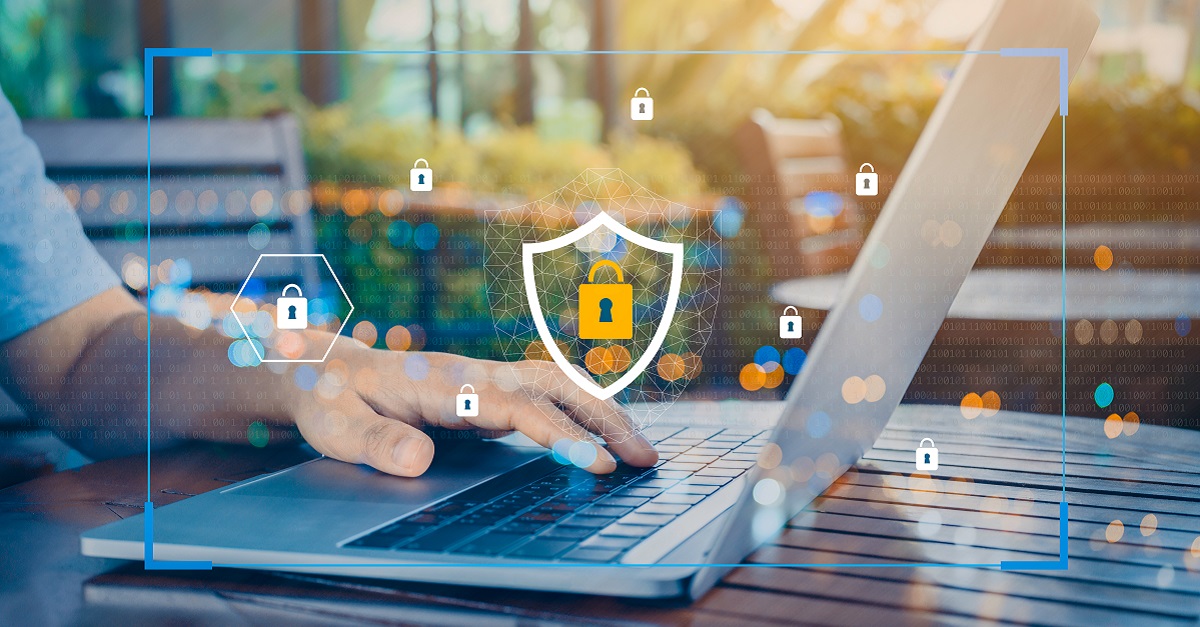For a business owner, the topic of cybersecurity can seem daunting, however having a basic understanding of what it is and why you need it to keep your business safe in 2020 and beyond is no longer optional, its essential.
Cybersecurity – a definition
Computer security, cybersecurity or information technology security (IT security) is the practice of protecting networks, computer systems, mobile devices, servers, and data from theft or damage, as well as from the misdirection or disruption of the services they provide.
Cybersecurity typically falls into five main categories: Network security, Application security, Information security, Operational security, and Disaster Recovery.
It can be applied in many contexts: as individuals, it’s also crucial to protect against identity theft, which is when criminals obtain personal information to create fake identity documents, open a new bank account, apply for a loan or carry out other illegal activities; for businesses, cybersecurity defends hard-earned profits, valuable intellectual property, and customer data.
So, how do cyber threats materialise?
Cyber criminals have devised a multitude of ways – both online and offline – to carry out attacks. Many common cyber threats such as phishing, malware and ransomware are delivered via links in email, chat, and social media.
Small businesses are a massive target for cyberattacks
As a small business owner, you may assume your company is not big enough to be targeted by cybercriminals. In fact, the reverse is true, especially as small companies rarely invest enough in security measures and training.
A report in 2019 by CNN estimated that a data breach will cost a small business around $200,000. If customers sensitive personal information is compromised, it is likely than businesses will also have to pay for the lawsuits and legal fees that accompany them.
But that’s not all – with 80%* of consumers defecting from a business if their information is compromised in a breach irreversibly damage can be caused to a brand.
Cybersecurity done right can protect your business
With proper cybersecurity measures in place, small business owners can massively reduce their risk of being attacked and have confidence that their information and data is secured.
Ways small businesses can improve cybersecurity
It’s important to note that there isn’t a single solution that will magically protect a business. However, there are many things that small business owners can do to ensure better cybersecurity, and all without breaking the company bank account.
- Constantly educate your employees
90%* of cyber threats are accidentally introduced to businesses by employees, suppliers and even customers. A single mistake made by one employee can open a business to many cyberthreats – for example, accidentally opening a spam email or connecting to a public network to access company files could all lead to an attack.
Educating your employees about possible threats and how they should behave online is key to ensuring overall better cybersecurity. However, for a business to be protected, all its employees must be on the same page and follow best practice guidelines and measures.
2. Use strong passwords and 2FA
The easiest way to break into a business’s network is by guessing the passwords, which is quite easy to do than you might think. And with most people using a single password, if just one of them is compromised, hackers and criminals can gain access to an entire network.
Always make sure that passwords are unique for all accounts – ensuring that they use a long string of upper- and lower-case letters, numbers, and special characters.
Using two-factor authentication (2FA) is an added precaution that will, in addition to strong passwords, greatly improve your overall level of cybersecurity.
3. Have strong firewalls in place
Most operating systems come with their own firewalls which prevent outsiders from accessing the data on a network, but it’s always a good idea to check and, if necessary, purchase firewall software and install it.
4. Use a VPN
For small businesses having a Virtual Private Network (VPN) is essential. A VPN serves to protect the connection between a device and a network and is often used by people to bypass geographic restrictions. The connection is hidden and encrypted, which means that no one can intercept it and break into the device or the network.
For businesses with remote workers, a VPN can also reduce the risk of employees unknowingly exposing their companies to threats when connecting to unsecured public networks etc.
How Wontok can help
Wontok can protect your small business from cyber threats via our easy to use cloud-based platform, Wontok One.
Wontok One is cybersecurity at its best – enabling businesses to take control of their cybersecurity needs in one place, and best of all, without the need for any IT expertise. With Wontok One, anyone can manage a business’s cyber protection.
Our security technology delivers always on, real time protection against threats such as viruses and ransomware that can infect devices, and gives businesses the ability to take control of web access to reduce the risk of web borne threats such as malicious websites, apps, and at risk content being accessed both in and outside of the office.
Key business features include:
World class email protection – protecting against phishing scams which are one of the most common ways for cybercriminals to unleash an attack.
Watch & Alert system – we continuously monitor the dark web for a business’s critical data with Administrators being alerted if sensitive information is being used without permission.
Actionable insights – we provide valuable security intelligence, reports, and analytics to businesses enabling them to take instant action and reduce risks to data, devices, and emails.
Scalable and tailor made to the specific needs of each business, our simple to use Wontok One platform delivers a worry-free experience.
To find out more contact one of our expert team today: Contact Us
*Cybersecurityventures.com study, 2019
